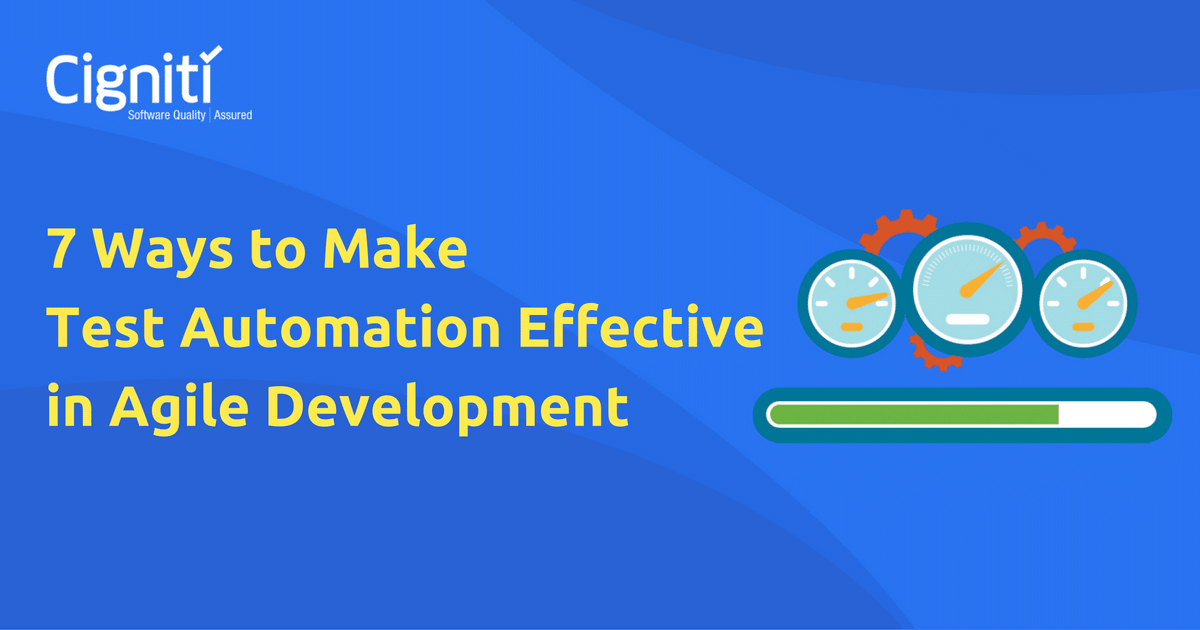A Practical Approach to Establishing a Test Center of Excellence(TCoE)
|
Listen on the go!
|
Every organisation across the globe wishes to have a team that nurtures an environment of innovation, thereby helping it to thrive in the market and beat the competition. However, while earlier managing business processes and QA used to be on a per project basis, today, these have become a process of continuous planning, integration, and management. This has led to the development of an organizational model based on testing center of excellence (TCoE).
A TCoE is made up of testing processes, people, tools operating as a shared services function in order to provide testing services with optimal benefits across the test organization. TCoEs can accrue many benefits to an organization in terms of improved quality, lesser time to market and lower cost of ownership.
As per the World Quality Report 2015-16, “The increasing interest in agile and DevOps principles is reflected in the preference for a decentralized Testing Center of Excellence (TCOE) model for improved agility and efficiency. A total of 64% see decentralization as a fundamental element of their TCOE plans, bringing the cost savings of globally distributed delivery models. “
This pretty much confirms the popularity of, and re-establishes the need for establishing a TCoE for organizations that want comprehensive and in-depth validation of their processes and systems. A well-integrated TCoE also helps reduce redundancies, supports risk mitigation, and also control IT-related expenses.
So, how do we implement TCoE?
As per Forrester, “IT organizations looking to improve their testing practices often opt to centralize some or all test-related activities in a Testing Center of Excellence (COE).”
This brings us to the question – what is the most practical approach for establishing a TCoE? Some steps to follow are listed below:
- Get an approval and agreement from all stake holders of the organization stating the need to establish a TCoE, and ensure that the multiple teams have clarity regarding the changes that will result due to implementation of TCoE.
- Analyze the current business processes, gauge the improvements that need to be made, and define clear processes and templates for the SDLC and STLC workflows that need to be implemented to bring about the required changes. Additionally, also reach a consensus regarding the intervals at which checks will be conducted to see if the processes are being followed.
- Identify what needs to be tested across the board quickly, and share observations and metrics that help add required value.
- Implement required best practices using well researched and scenario-specific tools that will speed up the process and help teams focus on other important activities.
- Keep working on the improvements so as to generate better ROI and establish an atmosphere of quality across the board.
Best practices from around the industry
A TCoE, setup correctly, can help cross-functional teams collaborate together, reduce redundancies and streamline diverse testing processes, accelerating the software testing life cycle.
A well-integrated, holistic TCoE approach helps testing organizations achieve the desired growth and excellence. A proper TCoE framework, while applying quality management principles, must take into consideration all the aspects of a test organization, be it processes, tools, services, or people.
Some specific tasks that lead to a TCoE environment include conducting regular leadership meetings, allocating proper budgets, monitoring the effectiveness of processes, benchmarking performance of test organization for optimum ROIs, providing customized frameworks for enhancing productivity, and providing all types of testing functions spanning all business units.
A thorough assessment of the client organizations testing process helps define and implement modifications that result in quality improvements and improved ROI.
A few business benefits of working in a TCoE environment are:
- Improved job satisfaction levels
- Reduced project timelines with lesser delays
- Reduced technology risk, and plans for the mitigation
- More time to focus on important activities that add more value
- Visibly significant savings in terms of annual expenses, at times to the tune of millions of dollars
Cigniti’s TCoE framework consists of elements such as Executive Commitments, Quality Management, Drivers, a Jumpstart Kit, and a comprehensive package of Core Testing Services. These elements when integrated together help implement a full-fledged TCoE environment for your organization. Contact us today to discuss about implementing TCoE for your organization..





Leave a Reply